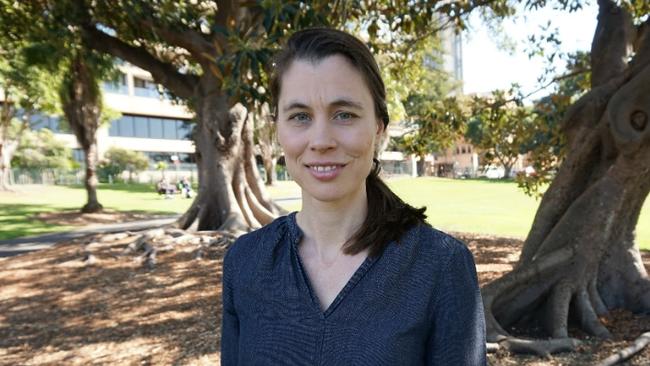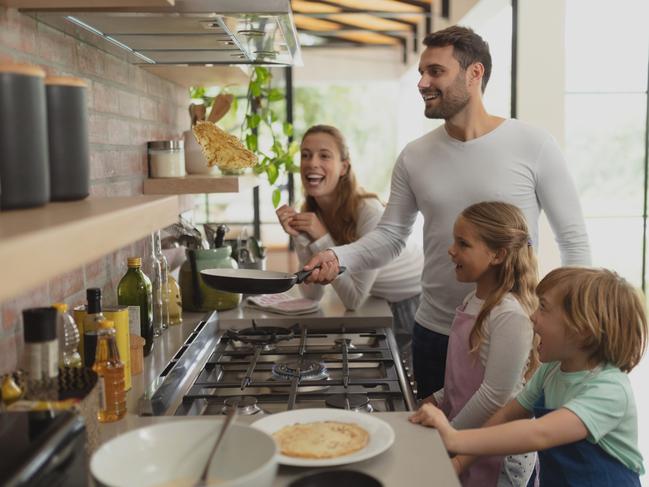As bad as smoking around your kids: Gas cooking health warning
Cooking with gas could be as bad for children as living with a smoker, with a new report revealing links to debilitating long-term health conditions.
Health
Don't miss out on the headlines from Health. Followed categories will be added to My News.
GAS cooking at home has been linked to an increased risk of asthma among Australian kids in an alarming new report.
The Climate Council study says using a gas stove without proper ventilation has a similar impact on childhood asthma to the effect of living in a house with a smoker.
The report claims up to 12 per cent of cases of childhood asthma in Australia can be attributed to gas cooking at home.
The finding tallies with other US studies which found children living in a home with gas stoves had a 42 per cent increased risk of asthma symptoms, and a 24 per cent greater chance of being diagnosed with the condition at some point in life.
“Gas cooking increases your risk both of getting asthma and worsening existing asthma,” report author Dr Kate Charlesworth told News Corp. “It doesn’t mean you definitely will get it; it’s an increased risk.”

Asthma is on the rise, affecting an estimated 2.7 million Australians.
Asthma Australia has backed the report, with CEO Michele Goldman saying some people “will be shocked to learn that cooking dinner on a gas stove could be contributing to their child’s asthma symptoms”.
“We need education to improve awareness for indoor air pollution. We should be doing everything possible to improve health outcomes for our children,” Ms Goldman said.
“People can take steps to reduce their risk by increasing ventilation, such as modern extraction fans over gas stoves, flues for gas heaters, and simple measures like opening windows. However, this won’t eliminate the risk completely,” she said.
The report calls for increased education about gas in the home, the mandatory servicing of gas appliances in public buildings, and government incentives for people to transition from gas to electric for their home energy needs.
“Just as doctors spoke up on the dangers of asbestos and tobacco in the past, we have a responsibility now to sound the alarm on the dangers of gas,” Dr Charlesworth said.
The decision to go with gas or electrical appliances in the home was one for individuals to make for themselves, she said, but parents should be informed about the risks.
“Obviously it’s their decision in the end but our role is to provide that information, so if they are concerned about it and they want to switch to electrical appliances, it’s easy to do so,” she said.

Ross Jamieson, President of the Gas Appliance Manufacturers Association of Australia (GAMAA), said he had not read the report and was unable to comment on it, but the organisation was engaging with all state government authorities about the need for gas appliance users to be informed of the importance of servicing and maintaining the devices.
“All people with gas appliances installed in their home, regardless of their age or underlying medical condition, need to ensure that their homes are properly ventilated and that their gas appliances are in good working order and operated and maintained in accordance with manufacturer instructions,” Mr Jamieson said.
The Climate Council report also made claims of poor health outcomes in communities adjacent to gas extraction operations, citing a 2018 study of the Darling Downs region in Queensland. That study concluded gas operations in the area had created “a significant public health concern”, with marked increases in hospitalisations for respiratory and circulatory conditions.
Dr Charlesworth said there was a stark need for more research into the topic.
“There isn’t much independent research into the health impacts of gas [extraction operations] that has been conducted in Australia. A lot of if has been overseen or funded by the gas industry itself,” she said.
More Coverage
Originally published as As bad as smoking around your kids: Gas cooking health warning





